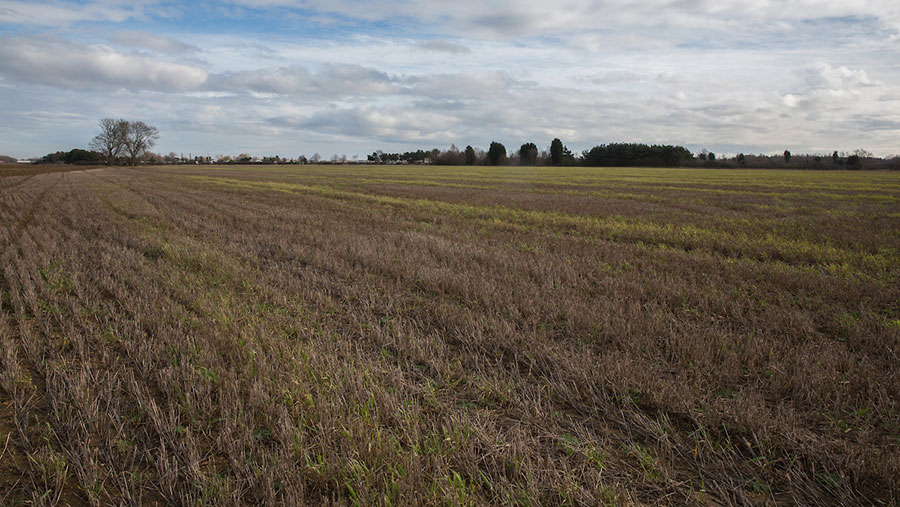Opinion: Farm input inflation is a threat to food security
 © Tim Scrivener
© Tim Scrivener This year will be remembered by the literatie for COP26; for world leaders flocking to Glasgow in private jets; for those leaders bowing to the superior pulling power of a teenage Swedish girl; for the overrated, but disappointing, outcome of it all.
Farmers were represented, of course, by the main UK farmers unions, the Linking Environment and Farming (Leaf) group and others.
But they received comparatively little recognition, except in magazines like this, as reporters for the popular media concentrated on coal and carbon, with the occasional critical mention of methane emissions from cows.
See also: Blaming livestock for global warming is ill-informed
But as important as climate change is, I suggest that food deserves at least equal attention.
Most of the COP delegates, particularly from the wealthy West, are used to whatever food they desire being available on demand.
Developing countries have not been that fortunate for climatic and, in some cases, corrupt reasons. But their votes count for little in such a forum.
Grain shortage
In its legitimate obsession to stop the destruction of rainforests, however, the conference may have missed the fact that the world is getting short of grain – the staple against which almost all farm production is measured.
As I write, the price of feed wheat is quoted at about £220/t and that for bread wheat up to £260/t, both spot, ex-farm, with futures prices heading upwards into the middle distance.
Imported maize, meanwhile, can be bought for a spot price of more than £320/t, plus delivery. Oilseed rape looks to be heading towards £600/t – prices few of us dreamed of not long ago.
And remember, those levels are based on world market supply and demand.
Livestock, with the sad exception of pigs, due mainly to lack of butchers in abattoirs, are recording similar satisfactory demand, with lambs and beef cattle making record prices.
Even milk seems to be on an upward trajectory at present.
All of this sounds great, until you look at increases in input costs. Anglia Farmers (or AF as it now calls itself), my local supply co-operative, released figures recently on the increases it had recorded in the year to 30 September.
Average input costs had risen 22%, it reported, but within that figure, fuel had gone up 80% and nitrogen fertiliser was up 51%. By the time the report was published, fertiliser had risen a further 50%.
Reactions to such price rises, which apply to a greater or lesser extent worldwide, have been swift. Farmers are reducing, or in some cases cancelling, their fertiliser orders.
Many are considering converting to organic systems.
Ban on organic
The Sri Lankan government has, perversely perhaps, banned organic farming because it reduces yields and the need there is to maximise food production.
Here in the UK there are persistent rumours of tenant farmers preparing to give notice to quit their holdings as they cannot face paying high rents.
Some owner-occupiers are also rumoured to be wanting to sell as they find themselves unable to maintain interest charges on historic mortgages.
They may well find ready buyers as wealthy industrialists queue up to buy land on which to plant trees to offset against their carbon emissions.
But what are the implications for food production, domestic self-sufficiency and consumer prices? A rhetorical question that answers itself.

